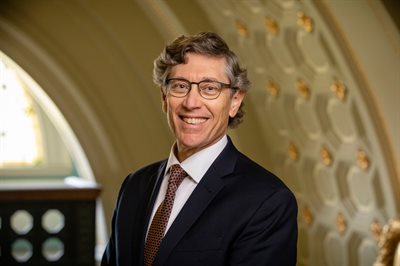A total of 11 voters cast ballots at Illinois Street Residence Hall during Tuesday’s primary election, but election judges said more than that many were turned away because they could not prove their residency inside the precinct.
Virginia Mannino, election judge at ISR, said voters who could not prove their current address could only vote for federal candidates and not in any local races.
She added that many potential voters came to ISR just to learn they were at the wrong precinct and must vote at a different location.
The other five polling places on campus mirrored these trends: few voters and problems with people who tried to cast ballots at the wrong location.
However, election judges and other officials said they expected just that.
Get The Daily Illini in your inbox!
Polls opened at 6 a.m. and by 1:30 p.m., 10 voters had cast ballots at Lincoln Avenue Residence Hall, said Lynn Harmon, poll organizer.
“I think it would be safe to say we’ve had a very low turnout,” said Andrew Torrey, poll organizer.
Dealing with voters who arrived at a poll where they were not registered to vote was one of the more complicated issues of the day, said Michael Brandt, election judge at the University YMCA.
About five people who tried to cast ballots between 5 and 6 p.m. were told that they must vote at another location.
“The ballot is cast by the voter provisionally, which means that it’s not put in the ballot box, but it’s kept separately and taken to the county clerk’s office for the county clerk to make a final decision on whether the ballot should be cast at this precinct in this election,” Brandt said.
“It’s identifying the problem and solving it for the voter, for me, is most complicated.”
Voter identification and proof of residency in Champaign-Urbana have also been voting issues in the past.
Brandt said zero votes were cast at the YMCA by 9 a.m., which is a slow pace that he contrasted to his memory of the 2008 presidential election.
“Last time I worked in the election, it was the presidential election in Champaign and it was jam-packed from 6 a.m. to 7 p.m. and people lined up most of the time outside the door,” Brandt said.
“It was busy continuously from the time the polls opened at 6 until the time they closed at 7 p.m.,” he said.
Election judge Tonya Ervin, who worked the polls at Snyder Residence Hall, said the most common voting times are before work, at lunch time and after dinner.
Election judges also said they expected more student turnout after noon because most students are in class in the morning.
Ryan Richardson, sophomore in LAS, said she planned on voting at Pennsylvania Avenue Residence Halls in the afternoon.
“A lot of the people we’re voting for play a key role in important decisions being made,” Richardson said. “They, too, make decisions that affect everybody.”
But at the PAR polls, traffic was also slow and the “Vote Here” sign was reported to be knocked down at one point.
Some students who chose not to vote Tuesday cited apathy or a lack of knowledge about the issues important to the primary election.
“I’m not voting because I have no idea what’s going on, to be honest,” said Jason Xue, junior in Business.
People who voted said based their decisions on issues ranging from abortion to finances.
“The economy and health care are important to me in choosing a candidate,” said Sean Hunter, freshman at Parkland College.





